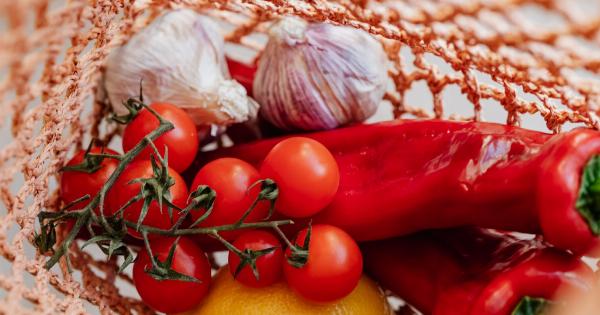Colon cancer, also known as colorectal cancer, is one of the most common forms of cancer worldwide. The good news is that there are certain foods you can incorporate into your diet to help lower your risk of developing this deadly disease.
In this article, we will explore some of these foods and understand how they can play a significant role in reducing the chances of colon cancer.
1. Cruciferous Vegetables
Cruciferous vegetables, such as broccoli, kale, cauliflower, and Brussels sprouts, are rich in nutrients and contain compounds that have been shown to have anti-cancer properties.
These vegetables are high in fiber, which helps promote healthy digestion and reduces the risk of colon cancer. Additionally, they contain sulforaphane, a compound that has been found to inhibit the growth of cancer cells.
2. Berries
Blueberries, strawberries, raspberries, and other berries are not only delicious but also packed with antioxidants. Antioxidants help protect the body from damage caused by harmful free radicals, which can contribute to the development of cancer.
Berries also contain high levels of fiber, which aids in maintaining a healthy digestive system.
3. Whole Grains
Switching to whole grains, such as brown rice, quinoa, whole wheat bread, and oats, can have a considerable impact on reducing your colon cancer risk.
Whole grains are rich in fiber, which helps regulate bowel movements and prevents constipation, a condition that has been linked to an increased risk of colon cancer.
4. Garlic
Garlic has been used for centuries for its medicinal properties, and studies have shown that it may help lower the risk of colon cancer.
Garlic contains various bioactive compounds, including allyl sulfides, which have been found to inhibit the growth of cancer cells in the colon. Incorporating garlic into your diet can offer numerous health benefits, including reducing the risk of colon cancer.
5. Leafy Green Vegetables
Leafy green vegetables, such as spinach, kale, collard greens, and Swiss chard, are nutritional powerhouses. They are packed with vitamins, minerals, and antioxidants that help protect against various types of cancer, including colon cancer.
These vegetables are also high in fiber, which promotes regular bowel movements and maintains a healthy digestive system.
6. Fish and Omega-3 Fatty Acids
Incorporating fatty fish, such as salmon, mackerel, and sardines, into your diet can provide you with a rich source of omega-3 fatty acids. Omega-3 fatty acids possess anti-inflammatory properties and have been shown to reduce the risk of colon cancer.
If you are not a fan of fish, you can also opt for omega-3 supplements.
7. Turmeric
Turmeric, a spice commonly used in Indian cuisine, contains a compound called curcumin. Curcumin has been extensively studied for its potential cancer-fighting properties.
It has been found to inhibit the growth of cancer cells in the colon and induce apoptosis, a process that leads to the death of cancer cells. Adding turmeric to your meals can be a flavorful way to reduce the risk of colon cancer.
8. Beans and Legumes
Beans and legumes, such as lentils, chickpeas, black beans, and kidney beans, are excellent sources of plant-based protein and fiber. Consuming these foods regularly can help lower the risk of colon cancer due to their high fiber content.
Additionally, legumes contain compounds like saponins and phytic acid, which have shown anti-cancer properties.
9. Green Tea
Green tea is known for its numerous health benefits, including its potential in reducing the risk of colon cancer. It contains catechins, a type of antioxidant that has been found to inhibit the growth of cancer cells and reduce tumor size in the colon.
Drinking green tea regularly can be a refreshing way to boost your colon health.
10. Nuts and Seeds
Nuts and seeds, such as almonds, walnuts, flaxseeds, and chia seeds, are loaded with nutrients and healthy fats. They are also rich in fiber and antioxidants, making them a great choice for reducing the risk of colon cancer.
Incorporate a handful of nuts or seeds into your daily snack routine or sprinkle them over salads and yogurt for added health benefits.
Conclusion
While there is no guaranteed way to prevent colon cancer, incorporating these foods into your diet can significantly lower your risk.
A balanced diet that includes a variety of fruits, vegetables, whole grains, and lean proteins can contribute to overall colon health. It is also crucial to maintain a healthy lifestyle by engaging in regular physical activity, quitting smoking, and limiting alcohol consumption.
Taking proactive steps towards a healthy lifestyle can go a long way in reducing the risk of colon cancer and promoting overall well-being.






























